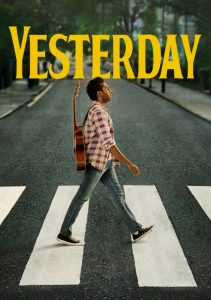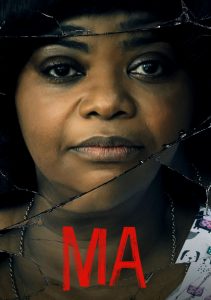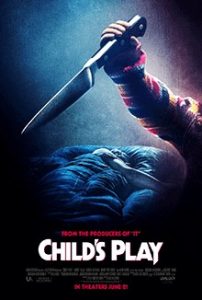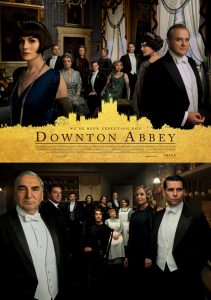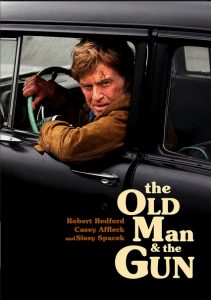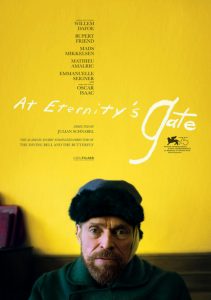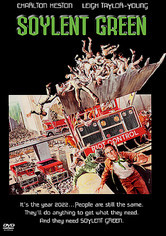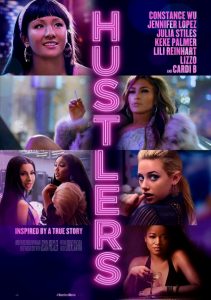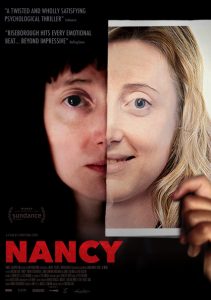Yesterday-2019
Director Danny Boyle
Starring Himesh Patel, Lily James
Scott’s Review #952
Reviewed October 29, 2019
Grade: B-
Yesterday (2019) is a film that is silly but sentimental, oozing with a nice quality that becomes tiresome towards the conclusion.
For those seeking a safe experience, the film will be deemed as wonderful, but for those with an appetite for a left-of-center grit, the film will only marginally entertain. It’s safe.
Director Danny Boyle (2008’s Slumdog Millionaire) chooses a charismatic British-Indian actor, Himesh Patel, for the starring role in a film that any fan of the rock band The Beatles should see.
Jack Malick (Patel) is a struggling musician who resides in Lowestoft, England, a suburb of London. Unsuccessful, he is nonetheless encouraged by his manager and childhood friend, Ellie (Lily James), to reach for the stars and never give up his dreams of achieving success.
One day, he is hit by a bus during a global blackout and is hospitalized with a head injury and missing teeth. When he performs the Beatles song “Yesterday” for his friends, they are blown away by its genius.
Jack realizes that the entire world has never heard of the legendary band and capitalizes on the stroke of luck, becoming a rock n roll superstar.
The massive song catalog of the Beatles featured in Yesterday is the best part of the film. The pleasure is in wondering which songs will appear next and in what context. Jack awkwardly “debuts” the song “Let it Be” to his parents, who continuously botch the name of the song, only showing mild interest.
Next, Jack furiously attempts to remember the lyrics to “Eleanor Rigby”, a difficult song lyrically. Other gorgeous classics featured are “The Long and Winding Road”, “Here Comes the Sun”, and “Something”.
A sentimental nod and appearance of a John Lennon figure is a nice touch and a worthy dedication to the deceased legend. The key here is wondering what would have become of the assassinated star had he not been famous.
The film approaches this when revealing that Lennon would be an older man today. Lennon tells Jack in a sentimental scene that he has lived happily with his wife by his side. If only this had been the case.
Patel is charming and a character to root for. As the butt of jokes made by his friends, who truly adore him, he is neither the handsome lead nor the wimpy co-star, more of a hybrid of the two.
We want him to achieve musical success because he is a nice guy, but we are glad when he finally confesses to the phony plot, as predictable as that revelation is to the film. Patel’s best scenes occur on stage when he either rocks out to the guitar or adorns us with a piano ballad.
Other than the above notes, Yesterday was only mildly entertaining, as it mixed a musical with a romantic story that does not work. If the audience is expected to root for Jack and Ellie to get together, then the idea falls flat.
The pair has no chemistry, nor is Ellie even remotely written as being the type who would live the rock ‘n’ roll lifestyle or want to. She is an elementary school teacher and asks Jack to give up his dream and lead a simple life in the suburbs. Who would do that?
Yesterday is riddled with stock characters, some of whom may or may not exist in real life. As much as I love actress/comedian Kate McKinnon, her overbearing character of Debra Hammer doesn’t showcase her best work.
Driven and cold, the character is played for laughs with her over-the-top behavior, but it feels too much like a part written to showcase McKinnon. Jack’s parents are cliche-filled characters, doting around with confused expressions and seeming to be overwhelmed by all events.
A musical film that cringes with a safe and saccharine feel, saved only slightly by the bevy of mostly 1960s hits by the Beatles, some of which lyrically are dissected and showcased.
Yesterday (2019) features pop star Ed Sheeran, who does not act or contribute to the film. Way too polished and superfluous for its good, Boyle, a worthy director, should have added some edginess rather than going for safe pop.
Thank goodness the film is about the Beatles rather than the Backstreet Boys.
